Go back
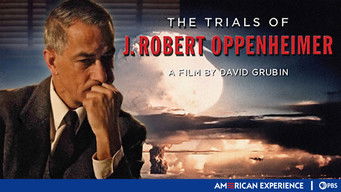
The Trials of J. Robert Oppenheimer
Episode number: 1
Overview: A brilliant scientist, Oppenheimer was tasked with the development of the atomic bomb in the top-secret Manhattan Project at Los Alamos, New Mexico during World War II.
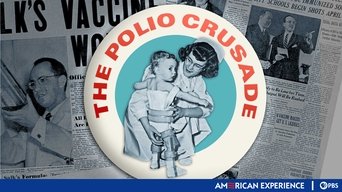
The Polio Crusade
Episode number: 2
Overview: The story of the polio crusade pays tribute to a time when Americans banded together to conquer a terrible disease. The medical breakthrough saved countless lives and had a pervasive impact on American philanthropy that continues to be felt today.
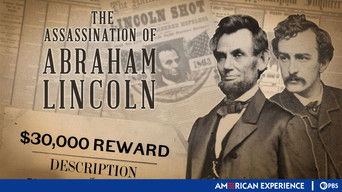
The Assassination of Abraham Lincoln
Episode number: 3
Overview: On April 14, 1865, Abraham Lincoln was assassinated at Ford’s Theatre in Washington, D.C. Over the next twelve days, as a fractured nation mourned, the largest manhunt ever attempted closed in on his assassin, the renowned 26-year-old actor John Wilkes Booth. The Assassination of Abraham Lincoln recounts this great American drama: two tumultuous months when the joy of peace was shattered by the heartache of Lincoln’s death. Featuring Will Patton (Numb3rs, A Mighty Heart) as the voice of the assassin and narrated by Academy Award-winning actor Chris Cooper (Seabiscuit, Adaptation), the film includes interviews with the nation’s foremost Lincoln scholars, who recount a great American drama: two tumultuous months when the joy of peace was shattered by the heartache of Lincoln’s death.
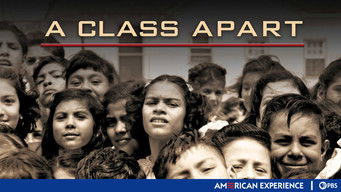
A Class Apart
Episode number: 4
Overview: From a small-town Texas murder emerged a landmark civil rights case. The little-known story of the Mexican American lawyers who took Hernandez v. Texas to the Supreme Court, challenging Jim Crow-style discrimination.
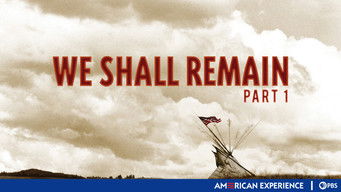
We Shall Remain (1): After the Mayflower
Episode number: 5
Overview: In March of 1621, in what is now southeastern Massachusetts, Massasoit, the leading sachem of the Wampanoag, sat down to negotiate with a ragged group of English colonists. Hungry, dirty, and sick, the pale-skinned foreigners were struggling to stay alive; they were in desperate need of Native help.
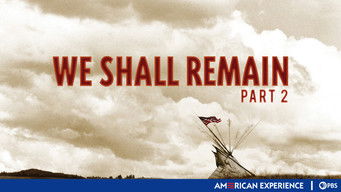
We Shall Remain (2): Tecumseh's Vision
Episode number: 6
Overview: In the spring of 1805, Tenskwatawa (actor Billy Merasty, Cree First Nation), a Shawnee, fell into a trance so deep that those around him believed he had died. When he finally stirred, the young prophet claimed to have met the Master of Life. He told those who crowded around to listen that the Indians were in dire straits because they had adopted white culture and rejected traditional spiritual ways.
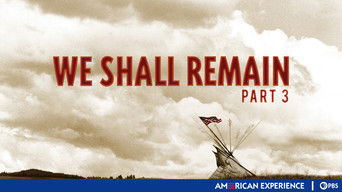
We Shall Remain (3): Trail of Tears
Episode number: 7
Overview: The Cherokee would call it Nu-No-Du-Na-Tlo-Hi-Lu, “The Trail Where They Cried.” On May 26, 1838, federal troops forced thousands of Cherokee from their homes in the Southeastern United States, driving them toward Indian Territory in Eastern Oklahoma. More than 4,000 died of disease and starvation along the way.
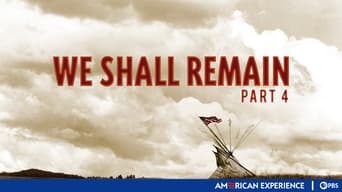
We Shall Remain (4): Geronimo
Episode number: 8
Overview: In February of 1909, the indomitable Chiricahua Apache medicine man Geronimo lay on his deathbed. He summoned his nephew to his side, whispering, “I should never have surrendered. I should have fought until I was the last man alive.” It was an admission of regret from a man whose insistent pursuit of military resistance in the face of overwhelming odds confounded not only his Mexican and American enemies, but many of his fellow Apaches as well.
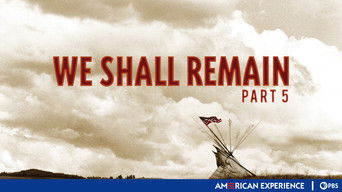
We Shall Remain (5): Wounded Knee
Episode number: 9
Overview: On the night of February 27, 1973, fifty-four cars rolled, horns blaring, into a small hamlet on the Pine Ridge Indian Reservation. Within hours, some 200 Oglala Lakota and American Indian Movement (AIM) activists had seized the few major buildings in town and police had cordoned off the area. The occupation of Wounded Knee had begun. Demanding redress for grievances—some going back more than 100 years—the protesters captured the world's attention for 71 gripping days.